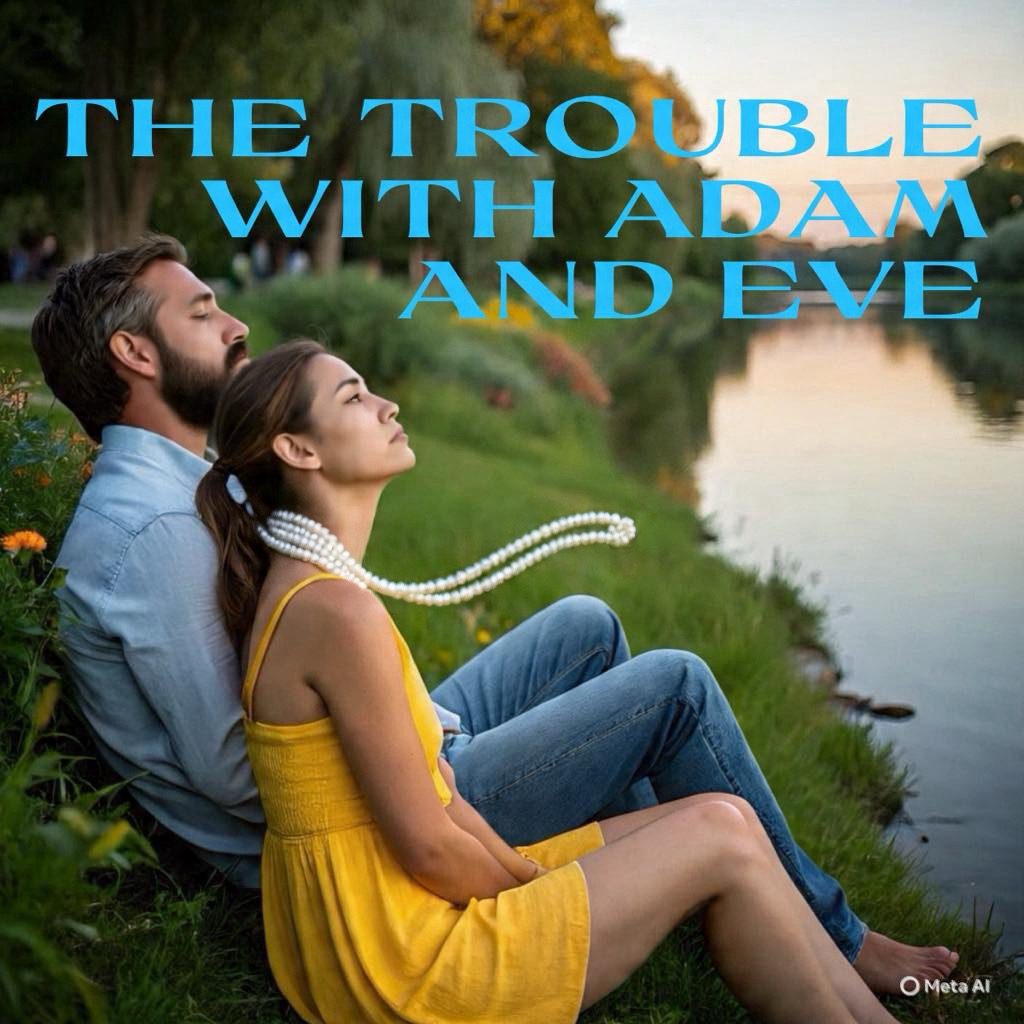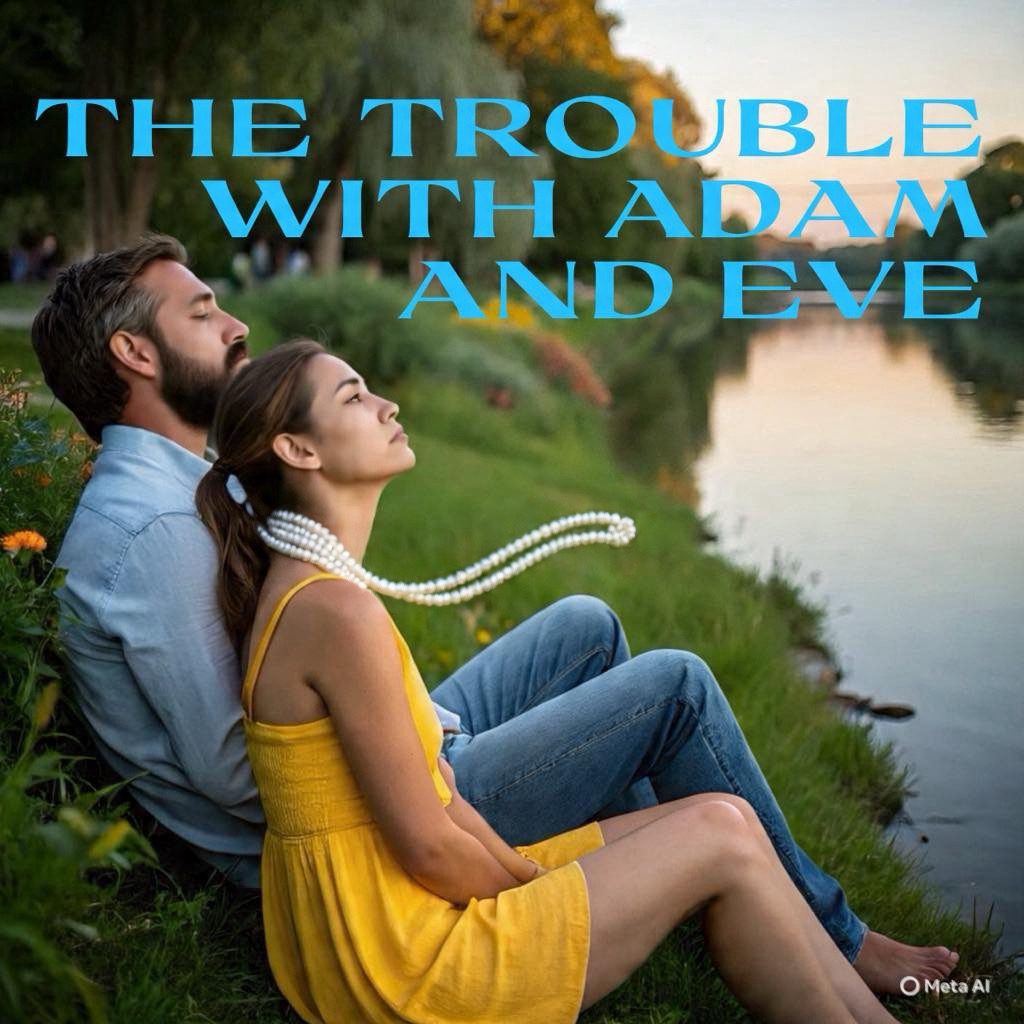In Eden, God’s perfect Paradise creations frolicked. The cobalt blue river provided a stunning backdrop for the king of the jungle and the playful gazelle, prancing harmoniously along the water’s edge. Catfish flipped and flopped, enjoying their swim with Ganges sharks. Majestic hawks and eagles perched contentedly in their box seats of lush green foliage, watching the lively scene below. Just down the way, beneath the shade of a tree, sat a man and a woman, fully absorbed in an intimate conversation, until a low, unfamiliar voice spoke to the woman.
“Did God really say, ‘You must not eat from any tree in the garden?’”
Startled, she replied, “Oh, we can eat from any tree, just not the one in the middle of the garden. You know, the Tree of the Knowledge of Good and Evil. We can’t even touch it, or we’ll die.”
“Aw, you won’t die. God knows if you eat it, you’ll become like Him, and you’ll know everything that’s going on – everything good and evil.”
The woman thought about that for a moment. She liked the idea of becoming godly. Who wouldn’t want to be like God? She reallyenjoyed the idea of knowing enough to make her own decisions. Before she realized it, the unfamiliar voice led them to the center of the garden, where they stopped in front of the forbidden tree. She picked some of its tasty-looking fruit. Then, in an effort to become godly, she ate the fruit of knowledge, wiped her chin, and shared some with her husband, who was with her. Immediately, their eyes were opened. Innocence lost. Guilt and shame found.
Suddenly, back along the river’s edge, the eagle swooped down from his perch for his first-ever fish snack; the shark smelled blood in the water; the gazelle ran for its life, and the roaring lion roamed the earth looking for something to devour. It was every man and beast for themselves. Paradise no longer frolicked.
I’ve read the story from Genesis 3 and wondered why Adam and Eve turned away from everything God had given them to follow a voice they didn’t recognize. How could they possibly think they could ever follow a plan better than the one God had created for them? That’s when one of those pearly-white aha moments hit me: they had become ungrateful. They lived in a perfect world—one we can only dream about. They walked with God in the cool of the day and talked with Him like good friends do. They even got along with each other and enjoyed being together. They spoke kindly to one another at all times. Yet, in one quick moment of ungrateful discontent, they forfeited perfection for a life of toil and limitation.
Some in our society today have become dissatisfied with how God made them male or female. Many pursue material possessions and overlook the wealth of wonders they’ve already received from God. Pleasure and entertainment have become top priorities for many. Instead of humbly recognizing their need for a Savior, too many believe they can control their own destiny. The Bible says the love of money is the root of all evil, but I think ingratitude must be a close second.
If Adam and Eve’s ingratitude contributed to the mess we’re in, perhaps a whopping dose of gratitude could help us refocus our attention. Look around your life. There ARE people and things to be thankful for. Grateful hearts ooze contentment, and that contentment shows. Learning to be content in all circumstances attracts others to the Giver of all good gifts, who never changes. (Philippians 4:11 and James 1:17)
Our faith allows us to be part of an unshakable kingdom. For this reason, we should always feel grateful. (Hebrews 12:28) Because of Jesus, we experience God’s presence more intimately than Adam and Eve could have ever imagined. When we’re tempted to listen to critics and the voices in our minds searching for more, let’s focus on the same Holy Spirit power that raised Jesus from the dead, which lives in us. (Romans 8:11) God has already given us everything we need for life and godliness. (1 Peter 1:3) He’s given us the gift of grace that is indescribable (2 Corinthians 9:15) and totally inexpressible (1 Peter 1:8).
Stop listening to ungrateful voices and hear the voice of the Spirit:
“Devote yourselves to prayer, being watchful and thankful.” (Colossians 4:2)
“Rejoice always, pray continually, give thanks in all circumstances; for this is God’s will for you in Christ Jesus.” (1 Thessalonians 5:16-18)
“Through Jesus, therefore, let us continually offer to God a sacrifice of praise — the fruit of lips that openly profess his name.” (Hebrews 13:15)
When we compare the lives of those who are ungrateful to those who openly thank God, we can’t help but see a profound difference. If Adam and Eve knew then what we know now, they would choose gratitude every time.












